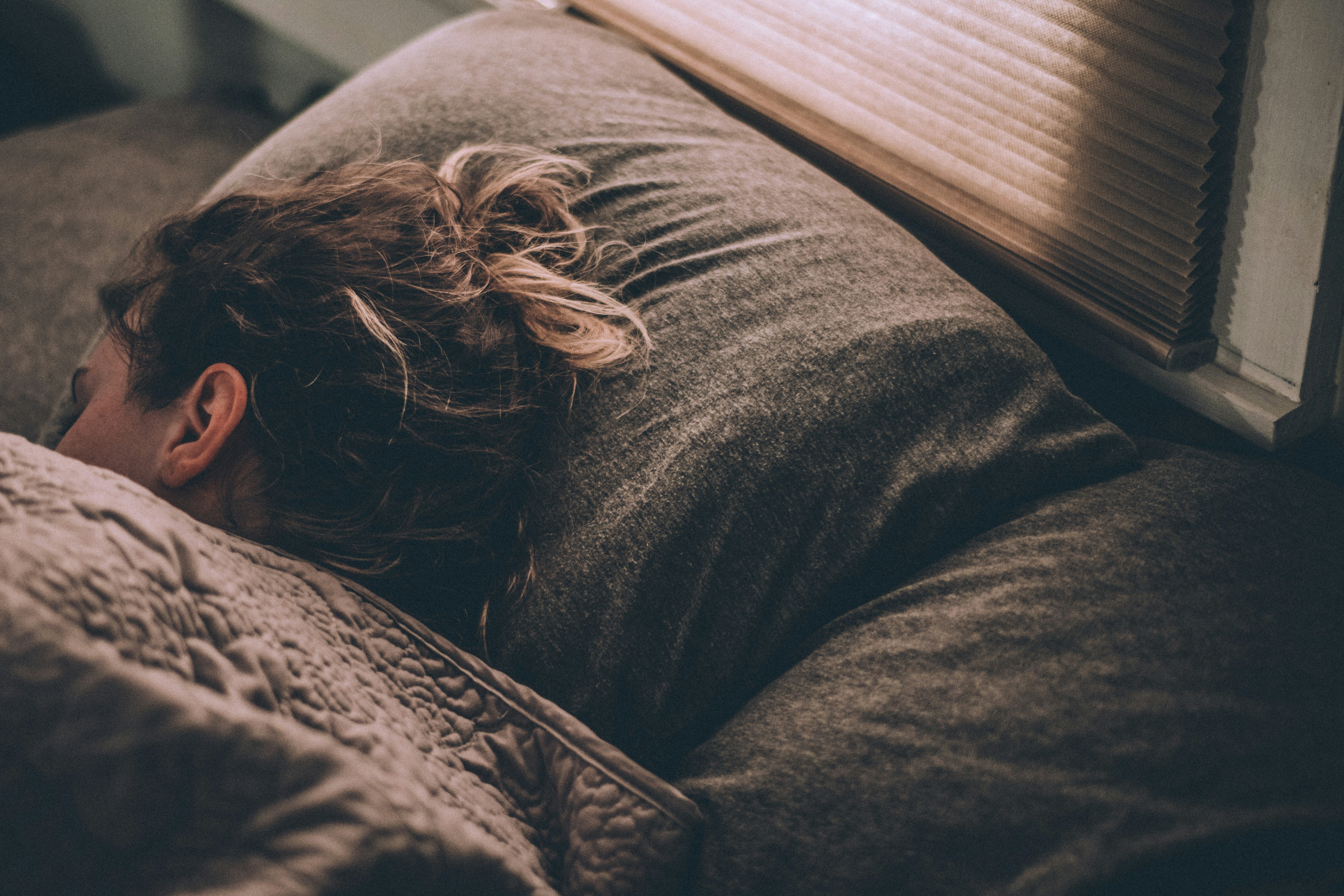



Everyone has certain times during their lives where they feel stressed. There are many reasons why me may come across situations that cause us stress, whether that be a big presentation at work, having to send the kids off to their first day of school, or a fight with a friend or family member. Sometimes if stress continues for a long period of time it can turn into anxiety. Anxiety can also sometimes seem to pop-up out of the blue, seemingly out of nowhere. It’s key to note the difference between the two. Stress is related to a specific trigger, while anxiety persists even when the trigger has passed. To help you manage your anxiety let’s take a look at these five steps for how to deal with anxiety.
Implement a Daily Routine
When you implement a daily routine, it helps you feel more in control of your day. As a lot of the time stress and anxiety can stem from feeling a lack of control within our lives. Setting a daily routine helps to combat this. In addition to feeling in control of your day, having a daily routine helps to eliminate decision fatigue. Decision fatigue is the deterioration of good decision making and occurs when you have to constantly make decisions. Additionally, when you are experiencing anxiety it can hinder decision making.
Although it may seem small, decisions like when to exercise, or what clothes to wear for the day can cloud your mind and impact your ability to make reasoned and well thought out decisions about other more important aspects of your life. If you plan out your day, you automate many decisions and lessen the chances of developing decision fatigue and any related anxiety.
Try Meditating
Meditation is a practice focused on concentration, where you empty your brain of all its thoughts outside the current moment. Generally, anxiety comes with a preoccupation with thoughts and fears about the future, and various negative and worry-some thoughts. When you meditate you focus on the present and this helps you to train your brain to detach from negative thoughts. With regular meditation sessions, you can train your brain to see situations from an outside objective perspective, which can help ease anxiety.
Write Down Your Thoughts
Often times when we are experiencing anxiety, we may have many different thoughts going through our head at once. Having so many worries swirling around can become overwhelming and make it hard to focus on anything else, as your brain simultaneously worries about one thought, but before it has time to think it through properly, another negative thought pops up. Writing these thoughts down can help relieve your brain of some of the strain. Writing your thoughts down can be done in any form and one is not better than another. While writing in grammatically correct paragraphs may work for some, for others a more casual “brain dump” approach may be more efficient. Try writing down your thoughts and you will soon work out which style of writing helps best to calm your anxiety.
Keep your body moving
Regular exercise is key to both mental and physical health. As well as acting aa a great distraction against anxiety, exercise that raises your heart rate positively changes your brain chemistry. When you exercise to a moderate to high level your brain produces an increased availability of serotonin, gamma aminobutyric acid (GABA), brain-derived neurotrophic factor (BDNF), and endocannabinoids, which all act as important anti-anxiety neurochemicals. Research has shown that those with anxiety that reported a high level of physical activity, experienced less anxiety symptoms that those who had a lower level of physical activity. With that being said, any amount of exercise can ease the symptoms of anxiety. If you’re looking for a target to reach, try to achieve 30 minuets of exercise a day.
Consume positive content
When you’re caught up in anxious thoughts it can be hard to get yourself out of the spiraling negative mindset. A super simple way to stop yourself from falling down a hole of negatively is to actively consume positive content. There are many ways to do this, from listening to an uplifting podcast, to watching a funny cat video. Anything that distracts you from your anxious thoughts is helpful. If you are in a situation where you cannot access positive content, think of a positive memory. Thinking about our favorite holiday experience or our beloved pet can also help to distract your mind from anxious thoughts and reset yourself to a more positive state.
If you are experiencing anxiety, it’s important to get on top of it before it becomes chronic. Anxiety left unchecked can also develop into an anxiety disorder.
Everyone has certain times during their lives where they feel stressed. There are many reasons why me may come across situations that cause us stress, whether that be a big presentation at work, having to send the kids off to their first day of school, or a fight with a friend or family member. Sometimes if stress continues for a long period of time it can turn into anxiety. Anxiety can also sometimes seem to pop-up out of the blue, seemingly out of nowhere. It’s key to note the difference between the two. Stress is related to a specific trigger, while anxiety persists even when the trigger has passed. To help you manage your anxiety let’s take a look at these five steps for how to deal with anxiety.
Implement a Daily Routine
When you implement a daily routine, it helps you feel more in control of your day. As a lot of the time stress and anxiety can stem from feeling a lack of control within our lives. Setting a daily routine helps to combat this. In addition to feeling in control of your day, having a daily routine helps to eliminate decision fatigue. Decision fatigue is the deterioration of good decision making and occurs when you have to constantly make decisions. Additionally, when you are experiencing anxiety it can hinder decision making.
Although it may seem small, decisions like when to exercise, or what clothes to wear for the day can cloud your mind and impact your ability to make reasoned and well thought out decisions about other more important aspects of your life. If you plan out your day, you automate many decisions and lessen the chances of developing decision fatigue and any related anxiety.
Try Meditating
Meditation is a practice focused on concentration, where you empty your brain of all its thoughts outside the current moment. Generally, anxiety comes with a preoccupation with thoughts and fears about the future, and various negative and worry-some thoughts. When you meditate you focus on the present and this helps you to train your brain to detach from negative thoughts. With regular meditation sessions, you can train your brain to see situations from an outside objective perspective, which can help ease anxiety.
Write Down Your Thoughts
Often times when we are experiencing anxiety, we may have many different thoughts going through our head at once. Having so many worries swirling around can become overwhelming and make it hard to focus on anything else, as your brain simultaneously worries about one thought, but before it has time to think it through properly, another negative thought pops up. Writing these thoughts down can help relieve your brain of some of the strain. Writing your thoughts down can be done in any form and one is not better than another. While writing in grammatically correct paragraphs may work for some, for others a more casual “brain dump” approach may be more efficient. Try writing down your thoughts and you will soon work out which style of writing helps best to calm your anxiety.
Keep your body moving
Regular exercise is key to both mental and physical health. As well as acting aa a great distraction against anxiety, exercise that raises your heart rate positively changes your brain chemistry. When you exercise to a moderate to high level your brain produces an increased availability of serotonin, gamma aminobutyric acid (GABA), brain-derived neurotrophic factor (BDNF), and endocannabinoids, which all act as important anti-anxiety neurochemicals. Research has shown that those with anxiety that reported a high level of physical activity, experienced less anxiety symptoms that those who had a lower level of physical activity. With that being said, any amount of exercise can ease the symptoms of anxiety. If you’re looking for a target to reach, try to achieve 30 minuets of exercise a day.
Consume positive content
When you’re caught up in anxious thoughts it can be hard to get yourself out of the spiraling negative mindset. A super simple way to stop yourself from falling down a hole of negatively is to actively consume positive content. There are many ways to do this, from listening to an uplifting podcast, to watching a funny cat video. Anything that distracts you from your anxious thoughts is helpful. If you are in a situation where you cannot access positive content, think of a positive memory. Thinking about our favorite holiday experience or our beloved pet can also help to distract your mind from anxious thoughts and reset yourself to a more positive state.
If you are experiencing anxiety, it’s important to get on top of it before it becomes chronic. Anxiety left unchecked can also develop into an anxiety disorder.




